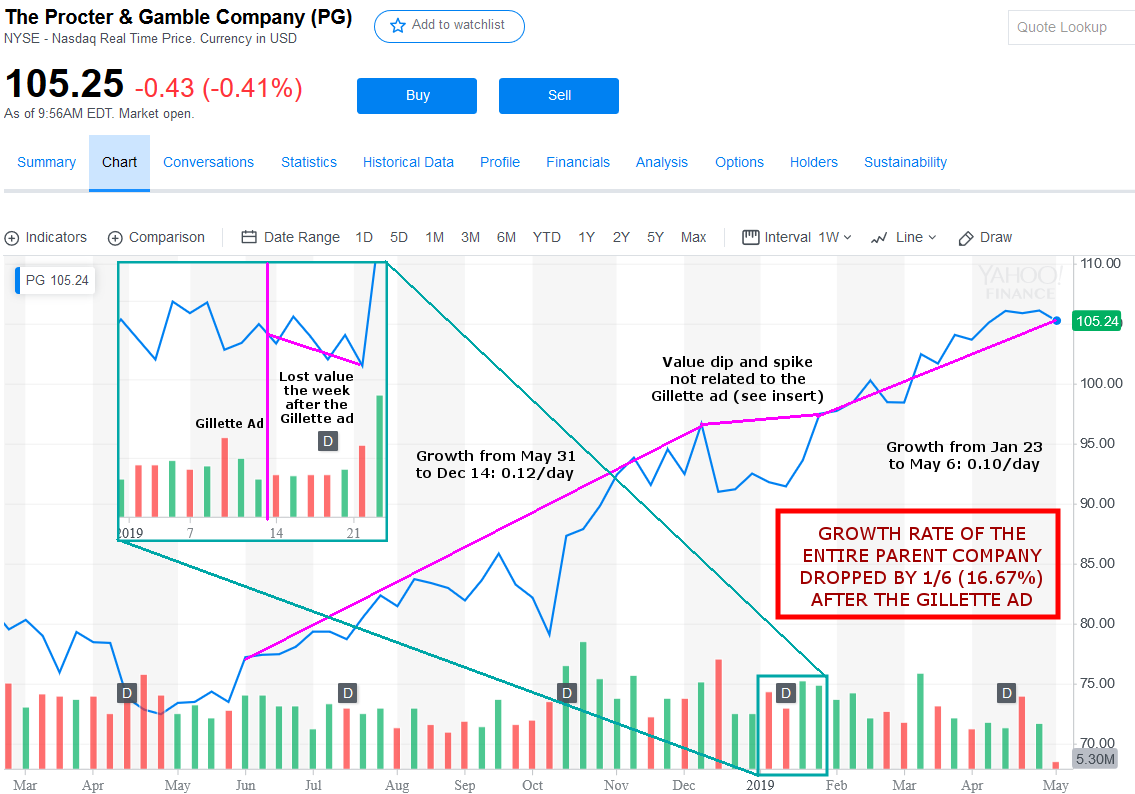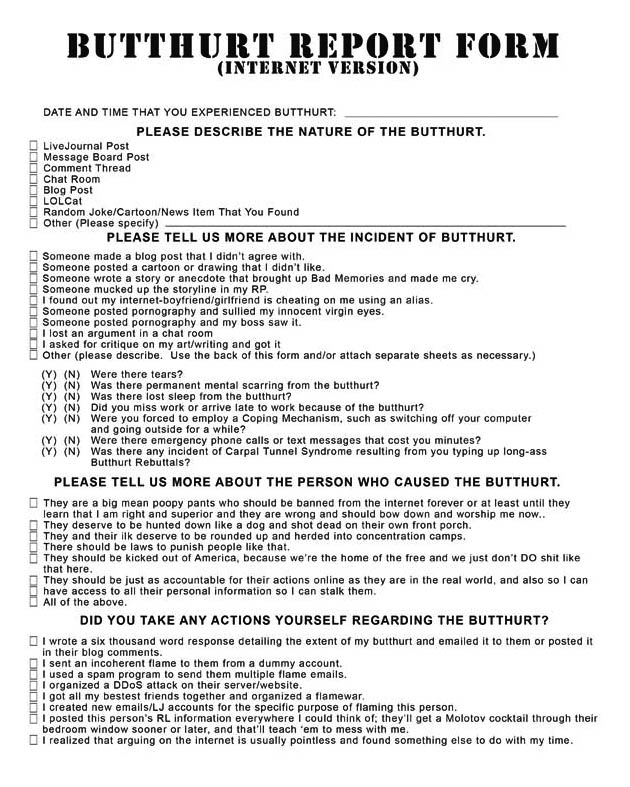Get woke, go broke? Some have argued that Gillette’s parent company benefited from the Gillette ad, citing the spike in stock value that took place over a week after the ad ran. Others argue that the ad harmed Gillette’s stock and was a net negative.

Here, we see the truth. Gillette’s parent company, P&G, was growing at a rate of $0.12 in value per day from May 31, 2018 to December 14, 2018. There was a big drop at Christmas (not unusual for a retail company’s value to drop after the busy holiday buying season ends) and there was a correction one month later. The Gillette ad ran near the end of the low period spanning the first three weeks in January.
Zoomed out, it may appear that the ad caused the spike in stock value, but zooming in shows that the entire week after the ad was put out represented a loss in value, NOT a gain. The facts speak for themselves: if the ad had any short-term effect at all, it was a negative effect.
The subsequent spike is also easily explained. Because the ad was controversial and the stock spent a week dropping, bullish investors could see that a correction was overdue from the December drop and took the opportunity to buy while the price was going down so they could ride the stock on its way back up. This kicked off the expected correction.
What is most interesting about the charts (and ignored by those who endorse fact-free “woke” political agendas) is the long-term growth rate. Before the drop and correction, they were gaining value at $0.12 per day, but after the Gillette ad ran (and the expected correction from the December drop was finished), this dropped to $0.10 per day, a loss of 1/6 (16.67%) of the entire company’s growth. P&G is a huge company and Gillette is only one of their many brands; 19 of their brands rake in over $1 billion annually, and Gillette is one of those brands.
1/19 of the company’s biggest brands killed 1/6 of the company’s growth with a single “woke” advertisement. Get woke, go broke, indeed.
This was written up because of a comment by “Old Blanco Rd Productions” on a Coffee Break video about “woke advertising” on YouTube. Notably, this commenter would repeatedly try to pull the conversation back to an advertisement by Nike featuring Colin Kaepernick, an ad which caused some controversy because Colin is the originator of the “take a knee during the national anthem” thing at football games. The same commenter didn’t want to talk about Gillette and P&G and was only interested in Nike and pushing the statement that “Nike added $6 billion in value after the Colin Kaepernick commercial!” Typical bullshit accusations of “sealioning” by a “Spencer Person” ensued, though sealioning is nothing more than a logically fallacious attempt to discredit people who demand that you support your arguments with facts. Quoting from that last link: “In other words, “sealioning” is a gag to be imposed upon people you disagree with if they argue with you for too long, too persistently, or in any fashion that you dislike.” To sum it up, these two people are keen to control the conversation so they don’t lose the argument. If you’ve read everything above, you can see why they’d rather accuse me of illegitimate tactics than to accept the cold, hard, high-low-close facts in the stock charts.
What that last paragraph leads up to is this: I watched both commercials. The Nike ad was only controversial because Colin was in it, but the ad itself is not actually a “woke” ad. It’s a typical Nike ad with a positive message that encourages you to get out there and be successful and stand up for yourself. It’s a well-done advertisement that does exactly what a major brand wants: to connect their brand with positive associations in the mind of the viewer. The Gillette ad, on the other hand, was a negative ad that stereotyped not only the entire male gender, but also visibly drew racial divides, with white males as mindless villainous rapists-in-waiting and black males as the only thing keeping them from raping everybody out here. Its “positive message” was nothing more than sprinkles on a racist, sexist, man-hating, race-baiting turd of a commercial that reinforces the premise that men are pieces of trash by default. The Nike ad worked out well for Nike because it was a good ad with a good message. The Gillette ad disproportionately hampered the growth of a company that has 18 other billion-dollar brands they derive value from because it was designed to press all of the controversial sociopolitical agenda buttons that it could.




